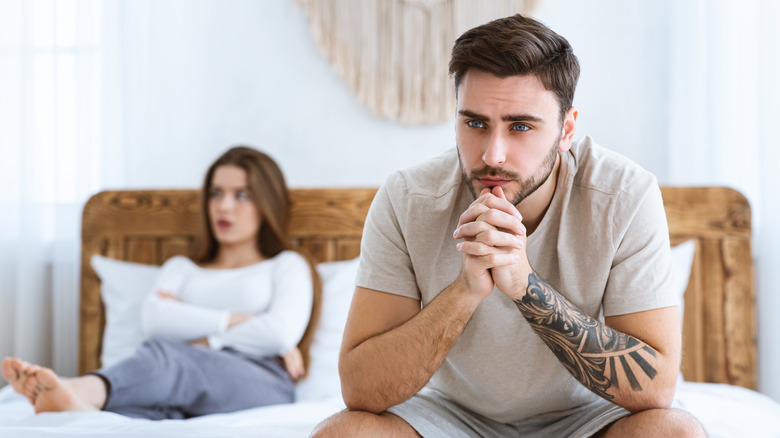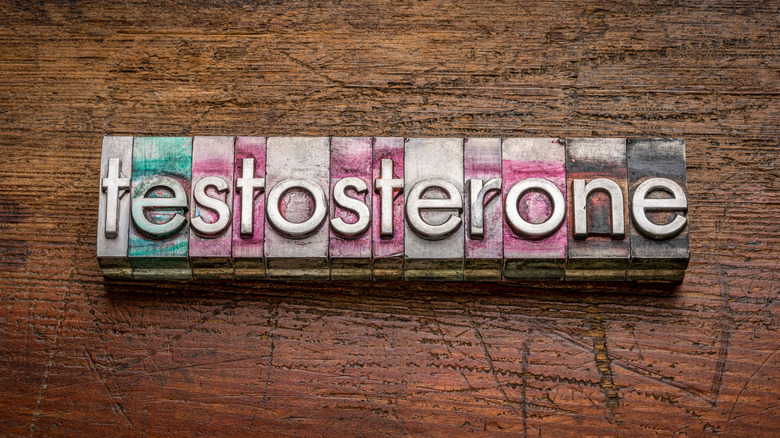The Real Reason Men Might Have A Low Sex Drive
Sex drive, also known as libido, refers to a person's desire to engage in sexual activity. When sex drive is absent or not as strong as it used to be, this can be troubling for many men. But, just what is considered to be a low sex drive?
Dr. Petar Bajic, a urologist and specialist in men's sexual health at the Cleveland Clinic, told WebMD, "There's not any kind of universally agreed upon definition of low libido, but the key is that it is bothersome." Bajic says if you're not suffering from any serious health problems and you don't feel concerned about your level of sexual desire, then you don't necessarily need to worry about it. However, if it's making you feel depressed, anxious, or stressed, it's time to see your doctor.
He further notes that it's completely normal to occasionally feel less than amorous, especially if you are tired or don't feel well. If it goes on for a longer time, though, it might be a sign of trouble.
Common reasons for a waning sex drive
Verywell Mind states that low levels of the hormone testosterone can lead to a low sex drive. Low testosterone is more commonly an issue in older men, although young men with heart disease, type 2 diabetes, or high blood pressure may have declining levels as well.
Healthgrades writes that there are several medications that can cause sexual problems, including low libido. Among these are antidepressants, antiepileptics, blood pressure medications, antipsychotics, cholesterol-lowering medications, antihistamines, antiseizure medications, and opioids.
Rather ironically, the condition that antidepressants are designed to treat — depression — can also lead to reduced sexual urges, according to Verywell Mind.
The American Association of Sexuality Educators, Counselors, and Therapists further notes that chronic illness can dampen sexual desire, especially if a person is dealing with a great deal of pain, fatigue, or problems with physical functioning. A study published in the World Journal of Men's Health discusses how sleep disorders and other sleep problems can affect sexual functioning as well. Verywell Mind further explains that sleep issues cause the stress hormone cortisol to rise, which can cause testosterone to fall.
Urology of Greater Atlanta notes that certain lifestyle factors can affect libido too. They say drinking, smoking tobacco or marijuana, and illegal drug use have all been linked to reduced testosterone. Finally, they explain that chronic stress may be associated with increased cortisol and decreased testosterone, which can lead to low sex drive.


